Forgive me if this has been posted before, but this always seems to be a common defense of anti-Christians against Christianity.
I'm sure many of us have seen this before:
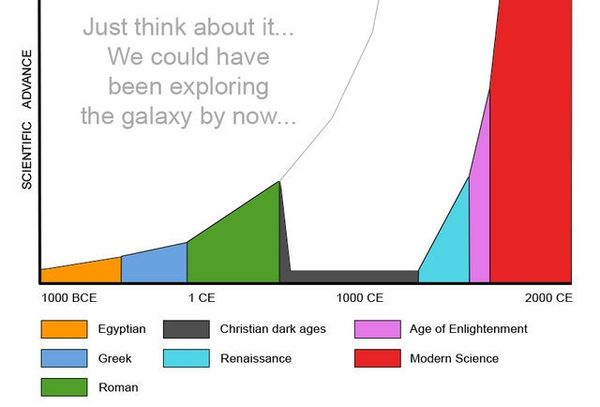
A good deal more of us have probably heard the argument, or at least a variation of it, that when the Church "was in control," they executed or imprisoned anyone who suggested anything that went against their teachings, including people who claimed the earth was round or that the earth revolves around the sun. Any science/art/inventions/&c. that threatened the Church's position were labeled as blasphemy and the people responsible were killed or jailed, along with a combination of "witch hunts" that destroyed a huge amount of the female population.
The people who argue this usually go on to claim that the Illuminati was an organization of the scientists of the time who went against the Church and were forced underground to avoid execution, which, due to the Church's view of them, is why the Illuminati is considered evil.
Casting aside the fact that nearly all of these points are false, let's discuss why, and I'm inviting all to join in.
First I'd like to quote Tim O'Neill, an atheist author, who had the following to say in a review of Hannam's God's Philosophers:
"About once every 3-4 months on forums like RichardDawkins.net we get some discussion where someone invokes the old "Conflict Thesis". That evolves into the usual ritual kicking of the Middle Ages as a benighted intellectual wasteland where humanity was shackled to superstition and oppressed by cackling minions of the Evil Old Catholic Church. The hoary standards are brought out on cue. Giordiano Bruno is presented as a wise and noble martyr for science instead of the irritating mystical New Age kook he actually was. Hypatia is presented as another such martyr and the mythical Christian destruction of the Great Library of Alexandria is spoken of in hushed tones, despite both these ideas being totally untrue. The Galileo Affair is ushered in as evidence of a brave scientist standing up to the unscientific obscurantism of the Church, despite that case being as much about science as it was about Scripture.
"And, almost without fail, someone digs up a graphic [see above], which I have come to dub "The Most Wrong Thing On the Internet Ever", and to flourish it triumphantly as though it is proof of something other than the fact that most people are utterly ignorant of history and unable to see that something called "Scientific Advancement" can't be measured, let alone plotted on a graph.
"It's not hard to kick this nonsense to pieces, especially since the people presenting it know next to nothing about history and have simply picked up these strange ideas from websites and popular books. The assertions collapse as soon as you hit them with hard evidence. I love to totally stump these propagators by asking them to present me with the name of one - just one - scientist burned, persecuted, or oppressed for their science in the Middle Ages. They always fail to come up with any. They usually try to crowbar Galileo back into the Middle Ages, which is amusing considering he was a contemporary of Descartes. When asked why they have failed to produce any such scientists given the Church was apparently so busily oppressing them, they often resort to claiming that the Evil Old Church did such a good job of oppression that everyone was too scared to practice science. By the time I produce a laundry list of Medieval scientists - like Albertus Magnus, Robert Grosseteste, Roger Bacon, John Peckham, Duns Scotus, Thomas Bradwardine, Walter Burley, William Heytesbury, Richard Swineshead, John Dumbleton, Richard of Wallingford, Nicholas Oresme, Jean Buridan and Nicholas of Cusa - and ask why these men were happily pursuing science in the Middle Ages without molestation from the Church, my opponents usually scratch their heads in puzzlement at what just went wrong."
The modern consensus also holds that the commonly held belief that everyone in the Medieval period believed that the earth was flat was a myth propagated by Washington Irving in 1828, though the Church did deny the Heliocentric theory [and some Christians still do].
Place aside for a moment the fact that the Church founded some of the first Western universities (Cambridge, Oxford, and the Sorbonne to name a few) and the fact that Monks, existing pretty much as the only educated in certain regions, carried along huge troves of wisdom and libraries full of books.
As for Galileo [a contemporary of Descartes], he lived in the Renaissance, and not the Medieval Period.
As for a ban on art and beauty? Yep, I concur, there was absolutely no artistic or musical beauty that came out of the Middle Ages.
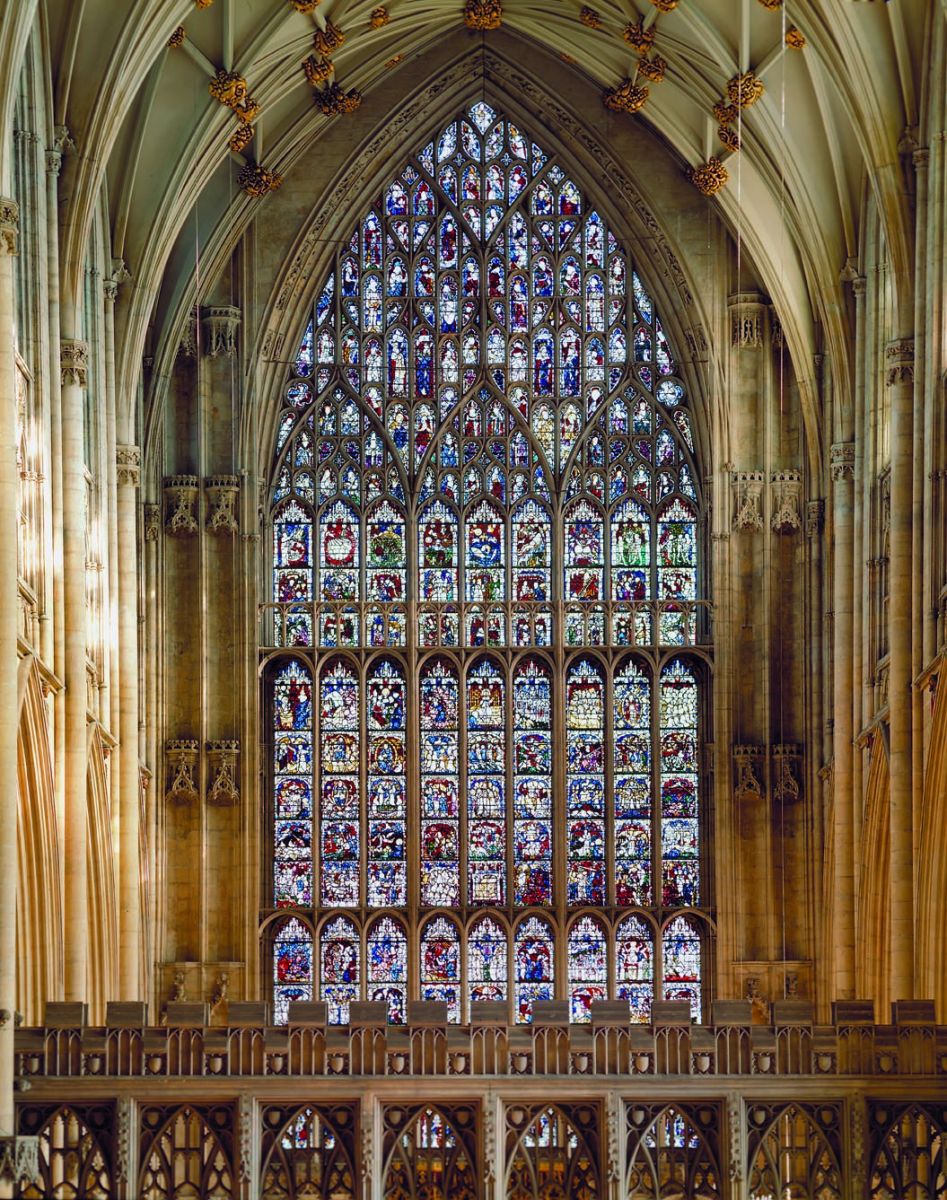
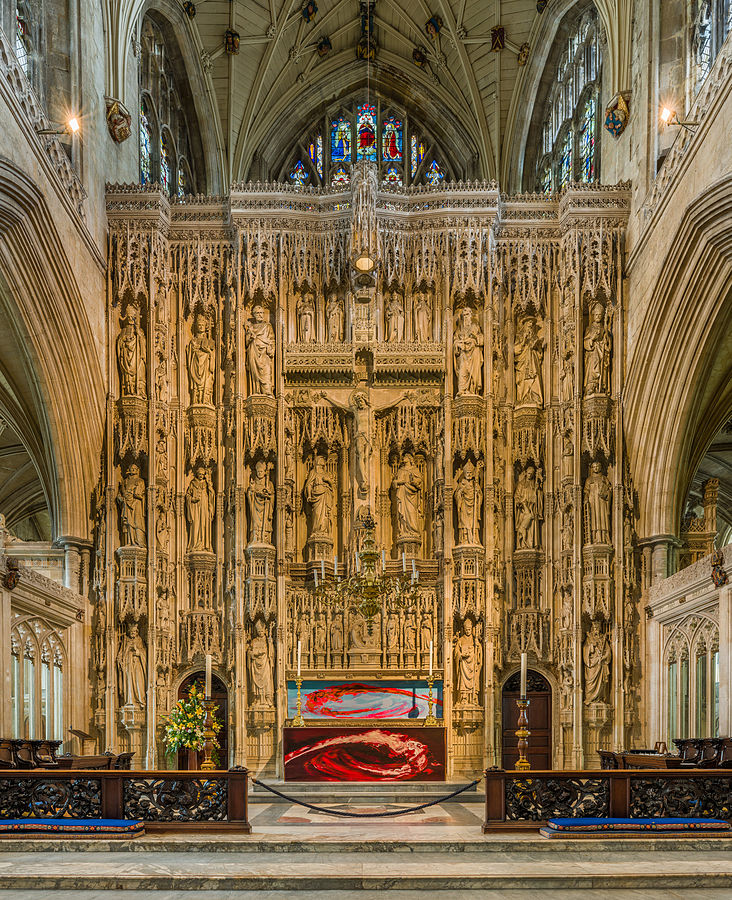
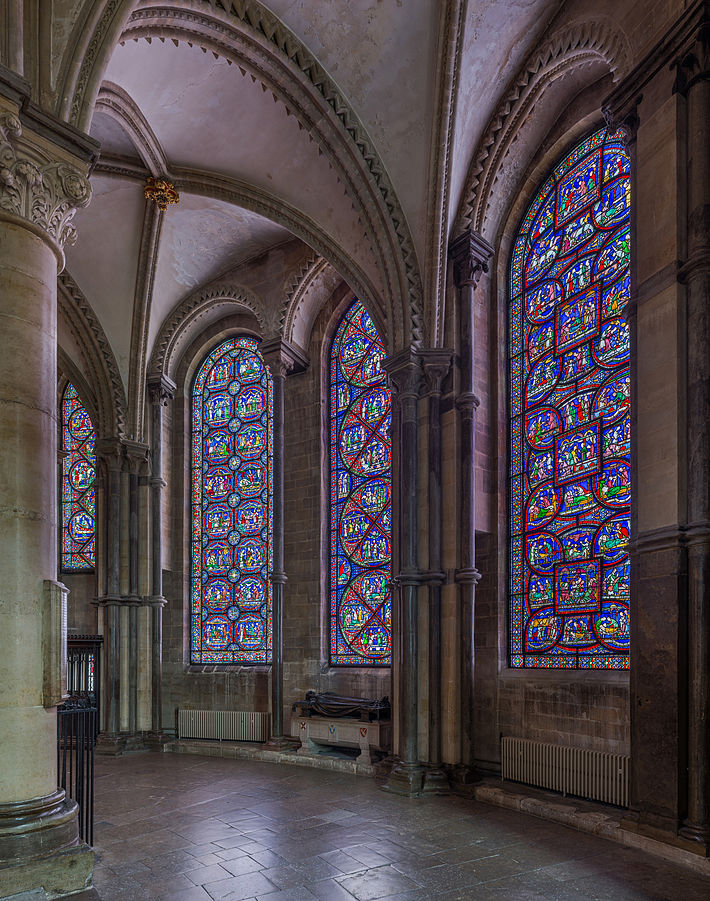
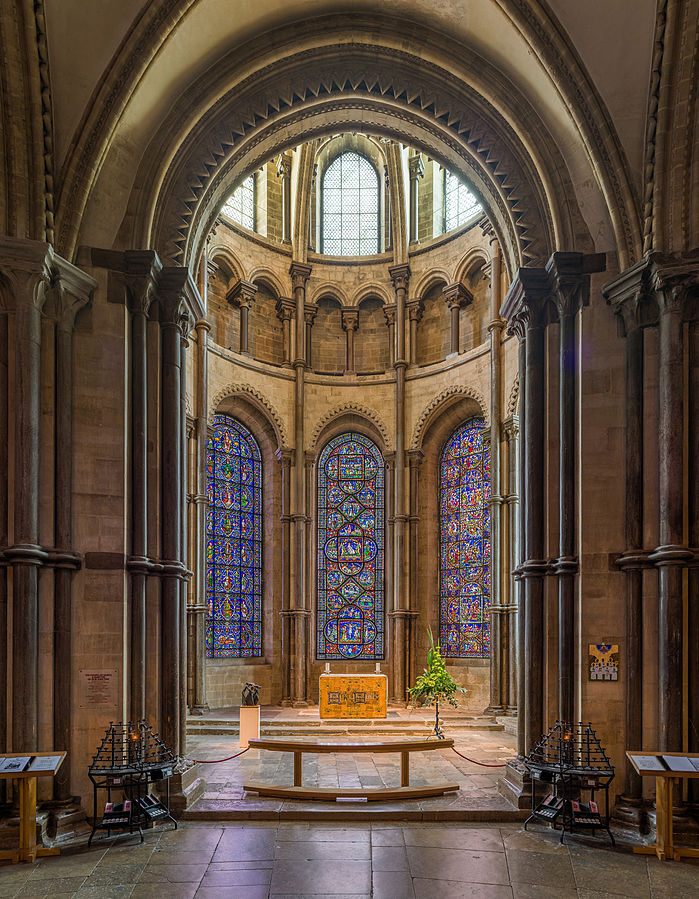
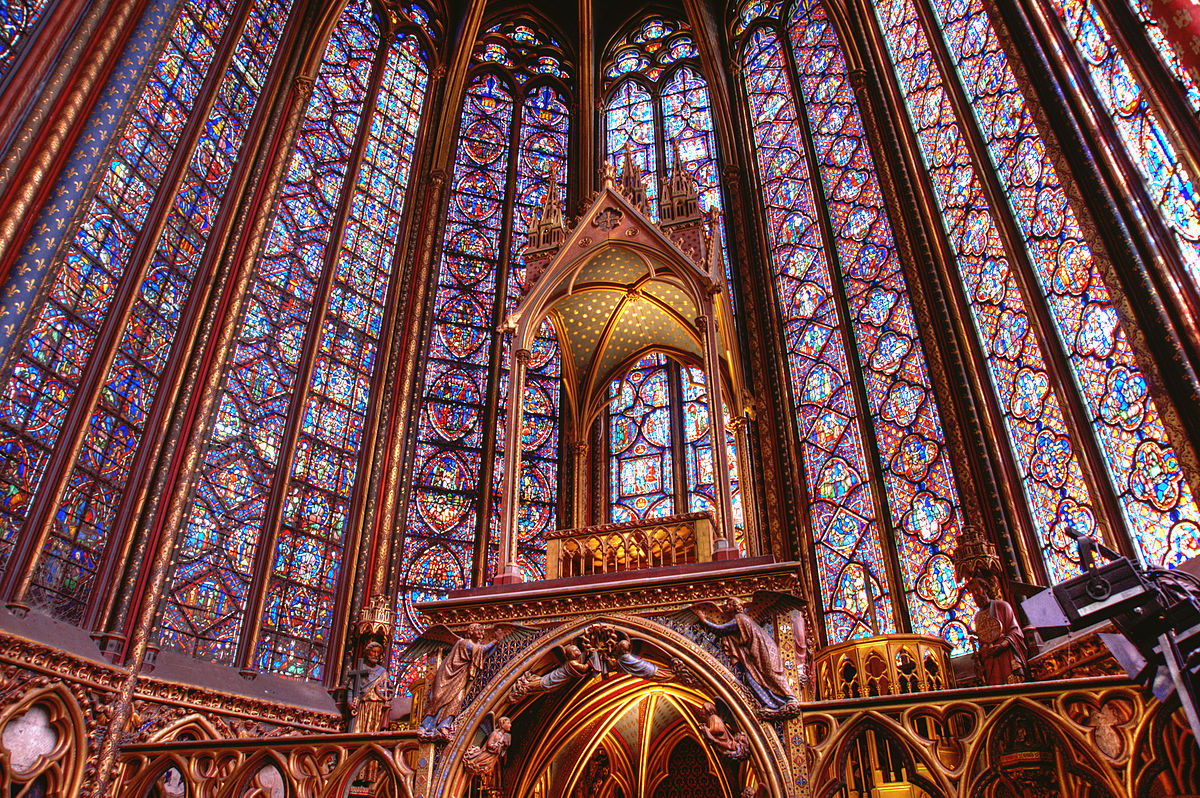
Oh yeah, I forgot. There was absolutely no good music, either.
Your thoughts?
I'm sure many of us have seen this before:

A good deal more of us have probably heard the argument, or at least a variation of it, that when the Church "was in control," they executed or imprisoned anyone who suggested anything that went against their teachings, including people who claimed the earth was round or that the earth revolves around the sun. Any science/art/inventions/&c. that threatened the Church's position were labeled as blasphemy and the people responsible were killed or jailed, along with a combination of "witch hunts" that destroyed a huge amount of the female population.
The people who argue this usually go on to claim that the Illuminati was an organization of the scientists of the time who went against the Church and were forced underground to avoid execution, which, due to the Church's view of them, is why the Illuminati is considered evil.
Casting aside the fact that nearly all of these points are false, let's discuss why, and I'm inviting all to join in.
First I'd like to quote Tim O'Neill, an atheist author, who had the following to say in a review of Hannam's God's Philosophers:
"About once every 3-4 months on forums like RichardDawkins.net we get some discussion where someone invokes the old "Conflict Thesis". That evolves into the usual ritual kicking of the Middle Ages as a benighted intellectual wasteland where humanity was shackled to superstition and oppressed by cackling minions of the Evil Old Catholic Church. The hoary standards are brought out on cue. Giordiano Bruno is presented as a wise and noble martyr for science instead of the irritating mystical New Age kook he actually was. Hypatia is presented as another such martyr and the mythical Christian destruction of the Great Library of Alexandria is spoken of in hushed tones, despite both these ideas being totally untrue. The Galileo Affair is ushered in as evidence of a brave scientist standing up to the unscientific obscurantism of the Church, despite that case being as much about science as it was about Scripture.
"And, almost without fail, someone digs up a graphic [see above], which I have come to dub "The Most Wrong Thing On the Internet Ever", and to flourish it triumphantly as though it is proof of something other than the fact that most people are utterly ignorant of history and unable to see that something called "Scientific Advancement" can't be measured, let alone plotted on a graph.
"It's not hard to kick this nonsense to pieces, especially since the people presenting it know next to nothing about history and have simply picked up these strange ideas from websites and popular books. The assertions collapse as soon as you hit them with hard evidence. I love to totally stump these propagators by asking them to present me with the name of one - just one - scientist burned, persecuted, or oppressed for their science in the Middle Ages. They always fail to come up with any. They usually try to crowbar Galileo back into the Middle Ages, which is amusing considering he was a contemporary of Descartes. When asked why they have failed to produce any such scientists given the Church was apparently so busily oppressing them, they often resort to claiming that the Evil Old Church did such a good job of oppression that everyone was too scared to practice science. By the time I produce a laundry list of Medieval scientists - like Albertus Magnus, Robert Grosseteste, Roger Bacon, John Peckham, Duns Scotus, Thomas Bradwardine, Walter Burley, William Heytesbury, Richard Swineshead, John Dumbleton, Richard of Wallingford, Nicholas Oresme, Jean Buridan and Nicholas of Cusa - and ask why these men were happily pursuing science in the Middle Ages without molestation from the Church, my opponents usually scratch their heads in puzzlement at what just went wrong."
The modern consensus also holds that the commonly held belief that everyone in the Medieval period believed that the earth was flat was a myth propagated by Washington Irving in 1828, though the Church did deny the Heliocentric theory [and some Christians still do].
Place aside for a moment the fact that the Church founded some of the first Western universities (Cambridge, Oxford, and the Sorbonne to name a few) and the fact that Monks, existing pretty much as the only educated in certain regions, carried along huge troves of wisdom and libraries full of books.
As for Galileo [a contemporary of Descartes], he lived in the Renaissance, and not the Medieval Period.
As for a ban on art and beauty? Yep, I concur, there was absolutely no artistic or musical beauty that came out of the Middle Ages.





Oh yeah, I forgot. There was absolutely no good music, either.
Your thoughts?
